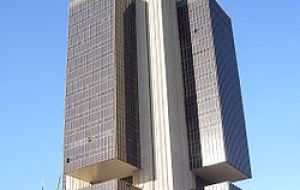MercoPress. South Atlantic News Agency
Brazil ready to raise rates next April following strong rebound
 Central Bank: risks of a benign inflation scenario increased
Central Bank: risks of a benign inflation scenario increased Brazil's central bank policy-makers said on Thursday they are ready to raise rates next month to curb inflation pressure as jobs data highlighted the strength of the country's economic rebound.
The central bank's board is in agreement on the need to cool a rapid rebound in consumer demand in Latin America's biggest economy, according to minutes from the bank's monetary policy committee meeting held last week.
Brazil would be the region's first major economy to hike borrowing costs in the wake of the global financial crisis should the bank raise its Selic lending rate when its next policy meeting ends on April 28.
“There was consensus among committee members on the need to implement an adjustment to the base interest rate,” the minutes said. “Given the signs of robust domestic demand, causing the reduction of the output gap... and recent inflation expectations, the risks to a benign inflation scenario increased.”
The central bank committee, known as Copom, last week voted to keep its so-called Selic rate unchanged at a record low 8.75% for a fifth straight meeting, despite rising inflation expectations.
A majority of the 8-strong Copom decided to wait for further evidence of inflation pressure before raising borrowing costs. Three voted for a 50-basis point increase and the minutes left the door open for bigger hikes down the line, some analysts said.
“The majority of Copom members...thought it more prudent to watch the evolution of the macroeconomic scenario until the next committee meeting, so as to then start the adjustment in the base rate,” the minutes said.
Job figures released on Thursday reinforced the view the Brazilian economy is on a solid footing. Unemployment in Brazil rose in February, but by less than expected as the recovery prompted more people to look for work.
Inflation expectations have been rising rapidly in Brazil during recent weeks. Analysts bet the benchmark IPCA consumer price index could reach 5.1% at the end of 2010, according to the latest weekly central bank survey. The government has an inflation target of 4.5%, plus or minus 2 percentage points.
Analysts in the central bank survey also see 5.5% growth for the economy in 2010, and the most recent data reinforced the prospect of solid growth this year.
Expectations of higher borrowing costs in Brazil come as the central bank readies a series of changes in foreign exchange rules that may slow currency inflows.
The measures aimed at simplifying the foreign exchange market could help offset the impact of more dollars entering the country from investors hungry for higher yields.
Among the measures announced on Wednesday, companies will not require prior authorizations from the central bank to move money in and out of Brazil. Also, companies that raise money through the sale of shares outside Brazil known as depositary receipts will be allowed to keep those proceeds abroad, Central Bank President Henrique Meirelles told a news conference in Brasilia on Wednesday.




Top Comments
Disclaimer & comment rules-

Read all commentsi expect the new increase...should be .. becouse it could make anti-cholesterol effect in the financial system but not effect on consumer
Mar 26th, 2010 - 11:39 am 0prices directly ...!
Commenting for this story is now closed.
If you have a Facebook account, become a fan and comment on our Facebook Page!